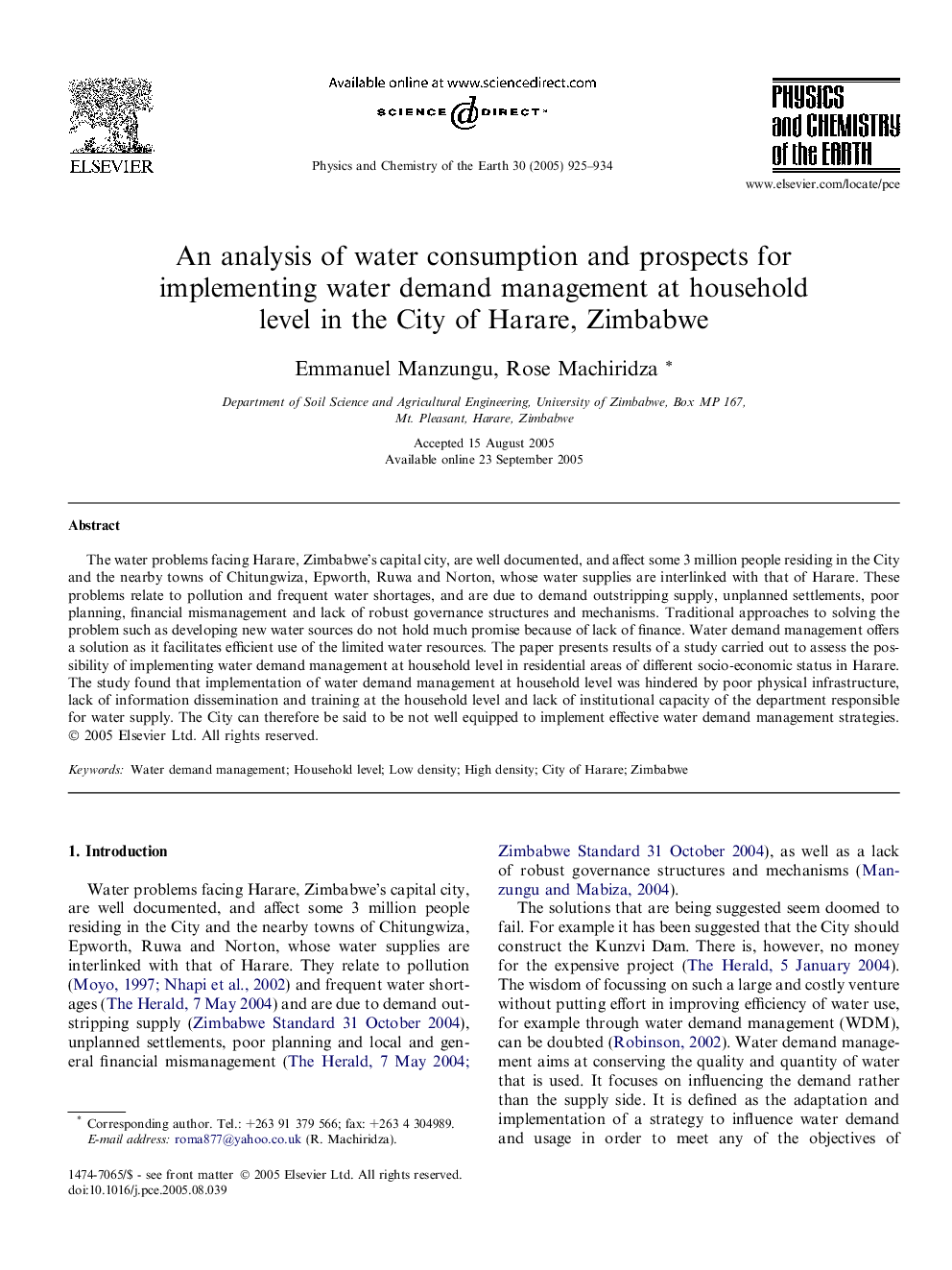| Article ID | Journal | Published Year | Pages | File Type |
|---|---|---|---|---|
| 10120045 | Physics and Chemistry of the Earth, Parts A/B/C | 2005 | 10 Pages |
Abstract
The water problems facing Harare, Zimbabwe's capital city, are well documented, and affect some 3 million people residing in the City and the nearby towns of Chitungwiza, Epworth, Ruwa and Norton, whose water supplies are interlinked with that of Harare. These problems relate to pollution and frequent water shortages, and are due to demand outstripping supply, unplanned settlements, poor planning, financial mismanagement and lack of robust governance structures and mechanisms. Traditional approaches to solving the problem such as developing new water sources do not hold much promise because of lack of finance. Water demand management offers a solution as it facilitates efficient use of the limited water resources. The paper presents results of a study carried out to assess the possibility of implementing water demand management at household level in residential areas of different socio-economic status in Harare. The study found that implementation of water demand management at household level was hindered by poor physical infrastructure, lack of information dissemination and training at the household level and lack of institutional capacity of the department responsible for water supply. The City can therefore be said to be not well equipped to implement effective water demand management strategies.
Related Topics
Physical Sciences and Engineering
Earth and Planetary Sciences
Geochemistry and Petrology
Authors
Emmanuel Manzungu, Rose Machiridza,
